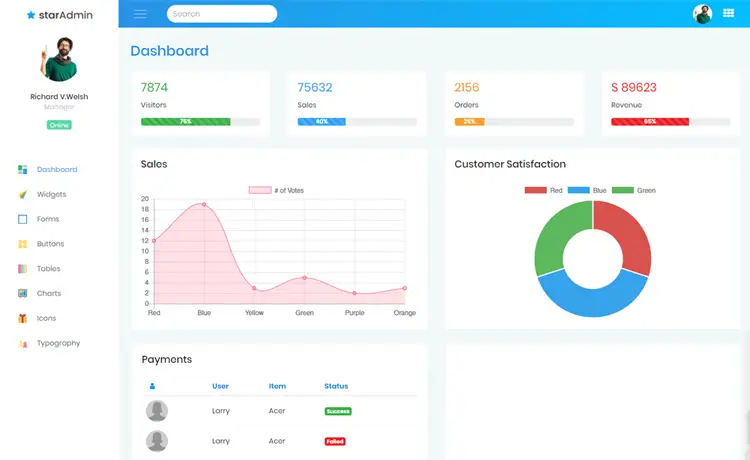How to convert string into number in Javascript
By Tan Lee Published on Nov 26, 2024 375
The simplest way is to use the native Number() function for converting a string to a number in JavaScript.
For example, Using Number() to convert a string to an integer in JavaScript
let str = "123"; let num = Number(str); // Output 123
The Number() function converts a string to a number.
If that doesn't work, alternatives include parseInt, the unary plus (+), parseFloat with Math.floor, or Math.round methods.
For example, Using the Unary + Operator to convert string into number in Javascript
let str = "123"; let num = +str; // Output: 123
The unary + operator is a shorthand to convert a string to a number.
For example, Using parseInt() to convert a string to an integer
let str = "123"; let num = parseInt(str, 10); // The second argument is the radix (base), usually 10.
If the string represents an integer, you can use parseInt()
For example, Using parseFloat() to convert a string to a float
let str = "123.45"; let num = parseFloat(str); // Output: 123.45
If the string represents a decimal or floating-point number, use parseFloat()
In some contexts, JavaScript automatically converts strings to numbers.
For example:
let str = "123"; let num = str * 1; // Implicit conversion using arithmetic operation
For example, Using Math.floor()
let str = "123.45"; let num = Math.floor(Number(str)); // floor() automatically converts string to number
Interestingly, Math.round (like Math.floor) can convert a string to a number, making it a great option if rounding is needed or the string contains an integer.
var round = Math.round;
var x = round("1000"); // Equivalent to round("1000", 0)If the string cannot be converted to a valid number, most methods return NaN
You can check for this using isNaN()
For example:
let invalidStr = "xyz"; let num = Number(invalidStr); console.log(isNaN(num)); // Output: true
Always ensure the input string is properly formatted to avoid unexpected results.
- How to use sweetalert2
- How to Pass string parameter in an onclick function
- How to format number with commas and decimal in Javascript
- What does 'use strict;' means in Javascript
- How to detect if caps lock is pressed in Javascript
- How to create a Custom Event in Javascript
- How to Check if an Object Has a Property Properly in JavaScript
- How to convert an Uint8Array to string in Javascript





